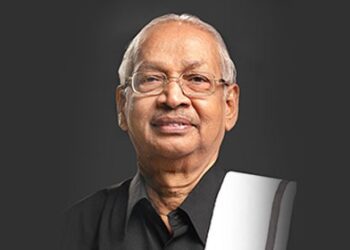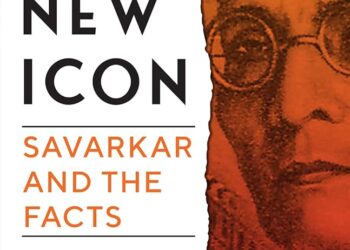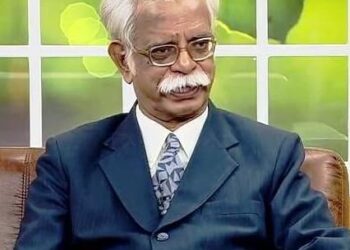K. Venkatapathy
Former Minister of State
for Law and Justice,
Government of India
(Excerpts speech of Mr. K. Venkatapathy, former Minister of State for Law and Justice at the 13th National Conference of the Federation of Indian Rationalist Associations held in Trichirapalli, on 28th December 2024)
Thanthai Periyar, who launched the self-respect movement in Tamil Nadu about a century ago, said that wisdom and self-respect are the jewels to humans.
The four words he uttered sounds more poetic in Tamil – let me say that: மானமும் அறிவும் மனிதருக்கு அழகு. When the literacy rate in India was below 10 per cent and female literacy was below 3 per cent, Periyar launched his movement, started questioning everything and travelled widely, spreading the message of scientific temper and humanism.
Owing to his more than fifty years of toil since 1925, Tamil Nadu today stands tall as a land of peace and prosperity. Article 51A(h) of the Indian Constitution reiterates Thanthai Periyar’s ideology that every citizen must develop scientific temper, humanism, spirit of inquiry and reform.We are making huge progress in the fields of science and technology. We have successfully conducted three moon landing missions called Chandrayaans in the last two decades, making the world look at us with awe and inspiration.

Success of “Mangalyaan” has made us the first Asian nation to reach Mars orbit and the first country to do so on its very first attempt. Our country today has many innovation centres; it is ranked as the top innovation destination in Asia. We also have the third largest scientific and technical manpower in the world. Our engineers and doctors run the top most companies of the world. All these shows the tremendous progress that we have made in the last 75 years. This trend of success stories made possible by the spread of scientific temper. All these success stories were due to the unstinted toil of our political and social leaders committed to foster scientific temper over the decades.
The other trend regrettably is the onslaught of the regressive forces trying to take the country back to the barbarian times, trying to put the clock back to Vedic times. I want to make it clear that this onslaught and going back to the past is a political project, a project aimed at keeping the masses under the perpetual control of the vested interests.
With that aim, they try to propagate falsehood; they try to spread misinformation. In their anxiety to glorify and promote a particular political view, the present day Union government is actively taking anti-science and anti-people stance.
Addressing a meet of doctors in Mumbai in 2014, the Prime Minister claimed that plastic surgery existed in ancient India. He said, “We worship Lord Ganesha. There must have been some plastic surgeon at that time who fixed an elephant’s head on the body of a human being and began the practice of plastic surgery.” His deputies and associates do not lag behind him in making similar false claims. A member of Parliament from his party, Pragya Singh Thakur claimed that “a mixture of cow urine and other cow products cured” her breast cancer. Under this regime even academics and professionals stoop to making such ridiculous claims.
Addressing the 106th Indian Science Congress in 2019, vice-chancellor of the Hyderabad University G Nageshwar Rao claimed that it was ancient Vaidik who pioneered stem cell research. He said “We had 100 Kauravas from one mother because of stem cell and test tube technology.”
He went on to add that Vishnu used guided missiles in the from of “Vishnu Chakra,” which was advanced enough to chase targets and terminate them before boomeranging back to him. He also claimed that Ravana, the antagonist in the epic Ramayana, possessed 24 kinds of aircrafts and operated several airports.
In April 2018, the then Chief Minister of Tirupura Biplab Deb claimed that the internet was invented by ancient Indians thousands of years ago. Minister of Science and Technology Harsh Vardhan claimed that the Vedas had a theory which trumped the relativity theory of Einstein.
Satyapal Singh, the Minister of State for human resource development, the department in charge of educating our children, claimed that Charles Darwin’s theory of evolution was “scientifically wrong.” We have hundreds of such claims from responsible people. These claims are utterly childish and innocuous. Even an average high school student will debunk them without much efforts.
The question that arises is: Why do well read, responsible and powerful people make such foolish claims? Do they really believe in all these statements that make no sense? When a Prime Minister of this country or other such responsible people address a formal gathering, like a science conference, every single word uttered by such dignitaries is prepared and vetted by the bureaucracy or their offices much in advance. This must be taken only as a considered policy of the government.
Similarly, we should also take the professionals and academics as making these statements knowing very well that they are false. Why do they keep on spreading such falsehoods? What is the motive behind their claims and assertions? That is the key question to be asked That is the question that holds the key to our future and the future of our progeny.
The answer is simple; they have a nefarious design. It is all parts of a well thought out plan; parts of a plan to keep the people under their control perpetually. For them keeping the people under their feet is more important than developing the country or ensuring good living standards for everyone. They do not want the people to get educated. They do not want the people to question them; they do not want anyone to challenge the exploitative, unequal, inhuman religion. They want to keep the social order they have imposed on us for thousands of years intact.
Clearly, it is a concerted effort. Whether it is the NEET or other entrance exams, the new education policy, one nation one election etc – the aim is the same. It is to deny the diversity of views; it is to deny the tradition of questioning everything; it is also to deny the ordinary people their right to a decent livelihood. Therefore, the question of scientific temper is not just an academic exercise; it has implications much beyond, it has implications for our political and social life.
I would like to go to the extent of saying that cultivation of scientific temper is the single most important thing we should ever bother about. We are living in an era of post truth culture, intentional promotion of ignorance and misuse of technology. Today, it is quite easy to dupe even a well educated person using the technological advancements. We see perfectly normal looking videos of political leaders and celebrities being circulated that are actually made using Artificial Intelligence. (AI)
We also witness some political leaders making irresponsible statements, hiding behind the technology – claiming that their video was manipulated using the AI. In this regard I would like to whole heartedly endorse the Declaration and Resolution on Scientific Temper adopted by a National Convention in Kolkata early this year. The Kolkata Convention called for action across three fronts: the State’s role, the involvement of scientific and academic institutions, and combating the undermining of science by the State, the erosion of academic freedom, and the spread of pseudo-science and unscientific beliefs.
Article 51A(h) of the Constitution of India speaks of the fundamental duty of citizens to promote scientific temper. Documents like the Industrial Policy Resolution and Scientific Policy Resolution were adopted laying a solid foundation for a planned development strategy, guided by a multidisciplinary group of experts in the Planning Commission. Independent scientists and social scientists were involved in policy-making, underlining the importance given to science and evidence-based policy-making.
Notably, religion played a minimal role in government affairs; and secularism, defined as non-discrimination and equal respect for all religions, was practised. In the last ten years or so, the Union government has been displaying a marked departure from this earlier stance. Now the government at the Centre and its various organs are actively opposing scientific approach, independent or critical thinking, and evidence-based policy-making.
Funding, fellowships, and independent research face severe cuts in academic and research institutions, burdened by overpowering bureaucratic structures. On numerous issues, the government takes important policy decisions without solid data, clear logic or even undergoing through the necessary democratic consultation processes. Open discussions in higher learning institutions are discouraged, hindering critical thinking, pluralism, and academic freedom.
The giant strides of modern science and technology cannot be undermined or replaced by fictional narratives, as seen in revised school textbooks of agencies at the Centre and in various States. These revised textbooks also omit chapters on crucial historical, societal, economic, and ecological issues in India. In higher education, mandatory courses on “traditional knowledge systems” are being introduced, presenting the distorted accounts of knowledge in ancient India as historical.
In the long run, this will result in incalculable damage to the progress of Indian science and to social harmony. Therefore, it is clear that it is the religion based belief system practiced by the common people that hampers growth of scientific temper in India. There are also other much stronger forces behind the persistence of blind beliefs in the country.
Tamil Nadu shows how attaining political power is also important for spreading scientific temper in a society like India. We must strive to keep the education system clear of all the pre conceived notions and blind beliefs. We must inculcate scientific curiosity and thinking capabilities from early childhood days. Governments must be forced to at least double their financial aid for scientific research and education. Presently, the governments at the Centre and the States together spend only about 4 per cent of GDP on education.
Above all, the general public must be vigilant. The success of a democracy and social progress cannot happen without promoting science and rational knowledge. Scientific temper and rationality are not the end but the means for robust discussion, debate, and decision –making to make our systems more meaningful and inclusive, showing us a way for peace, progress and prosperity.









